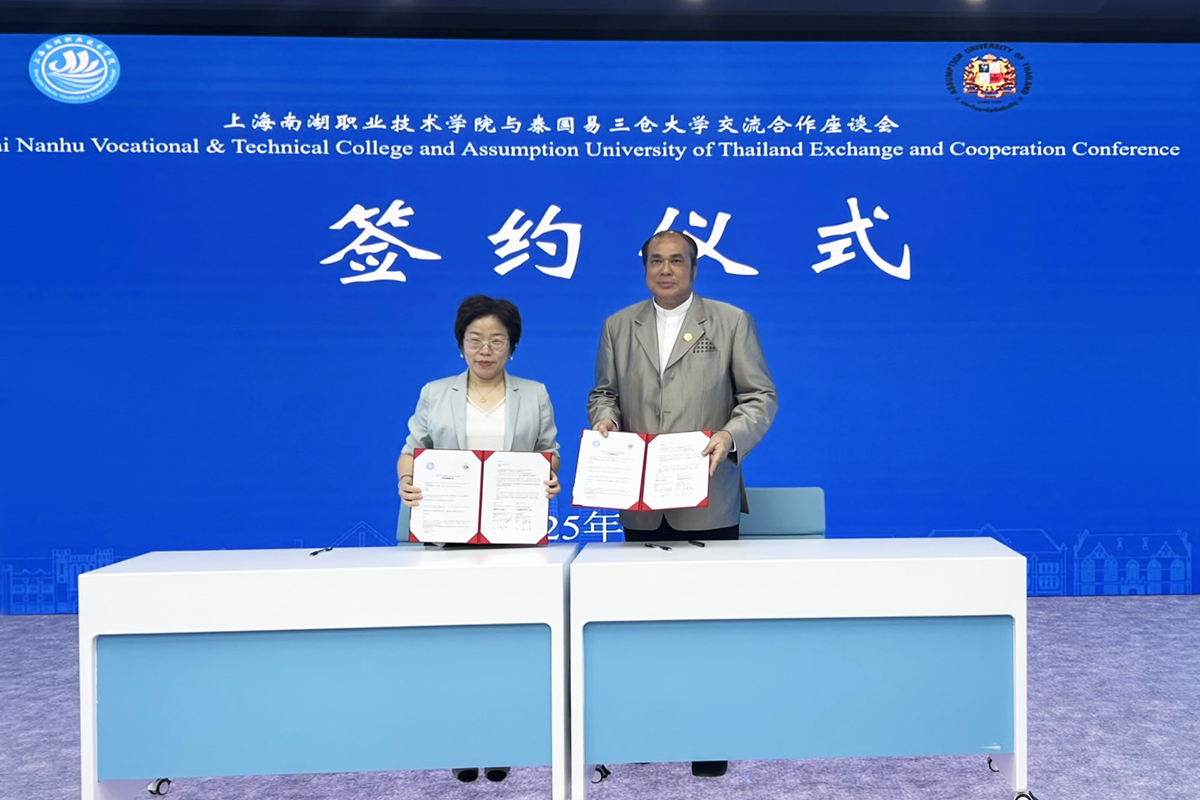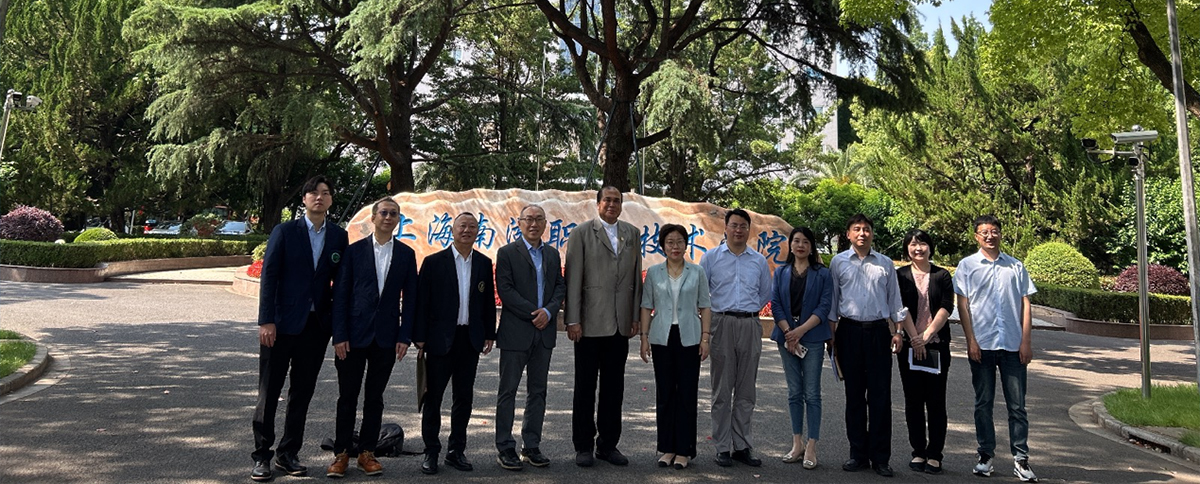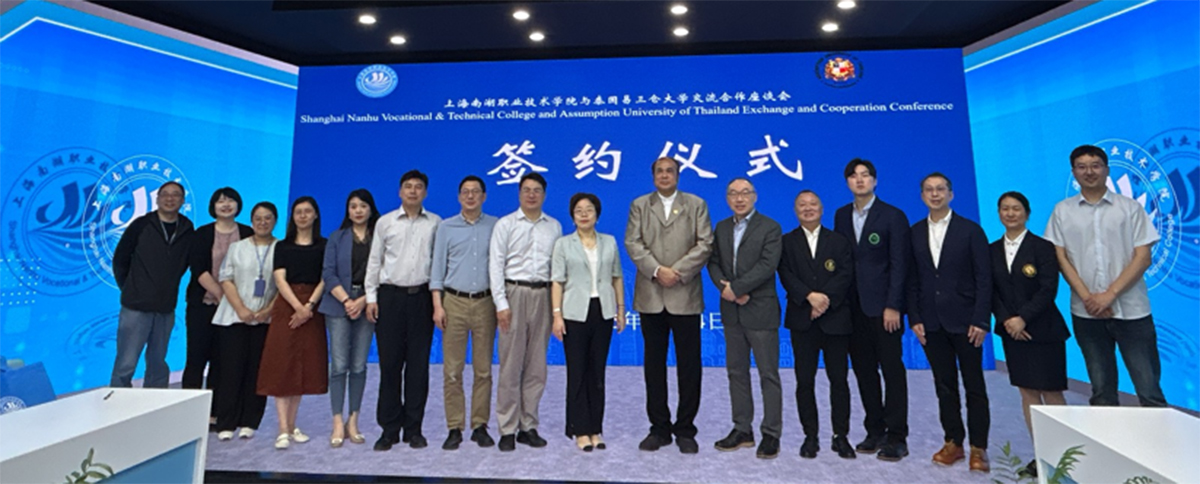| May 14, 2025 — Assumption University of Thailand (AU) has advanced its global collaboration by signing a landmark Memorandum of Understanding (MoU) with Shanghai Nanhu Vocational and Technical College during a strategic visit to China.
The agreement, signed at Nanhu College’s Cultural Center, establishes collaboration in three key areas: intelligent connected vehicles, healthcare training, and metaverse-based education. The AU delegation, led by Rev. Bro. Sirichai Fonseka, f.s.g., Ph.D., President of AU, was warmly received by Prof. Jianliu Zhu, Deputy Party Secretary and President of Nanhu College, together with Vice President Zhou Yifeng. Nanhu College is organized into five major academic groups—finance and commerce, tourism services, information technology, transportation, and culture and art—and hosts several nationally recognized training facilities such as the Shanghai Vocational Education International Business Open Training Center, the Auto Repair Open Training Center, and the International Cruise Teaching Base. As part of the visit, the AU delegation toured cutting-edge facilities including the 5G Digital Creativity Training Center, the International Cruise Training Base, and the New Energy Vehicle Smart Connectivity Center—all integrated within Nanhu’s Metaverse Digital Interactive Space. These facilities highlight Nanhu’s innovative approach in merging immersive technologies with vocational education. The partnership also includes the establishment of a Sino-Thai Intelligent Connected Vehicle Joint Laboratory, focusing on curriculum development tailored to the ASEAN market. In addition, both institutions will collaborate on metaverse-based immersive nursing training, integrating healthcare education with advanced digital technology. Over the next three years, Nanhu College will welcome 50 Thai exchange students and dispatch faculty to Thailand for co-developing localized academic content—reinforcing the institutions’ shared vision of fostering international collaboration and preparing students for the future of work. Relevant SDGs:
|




